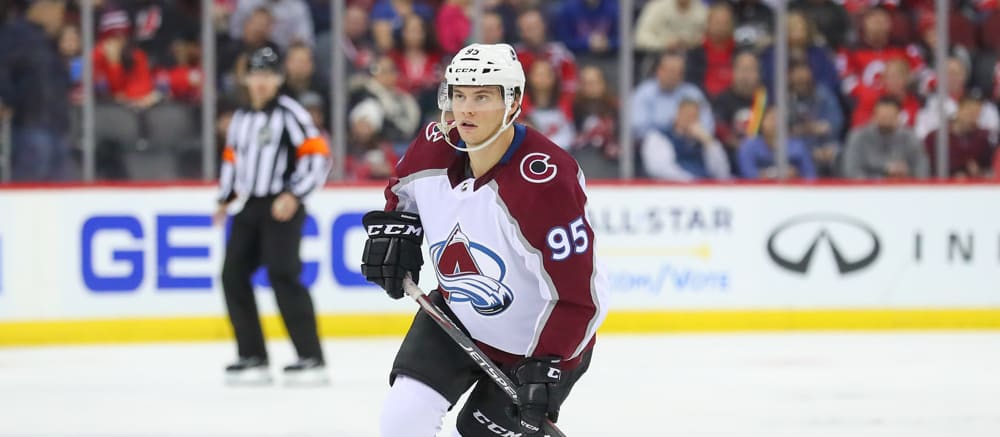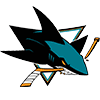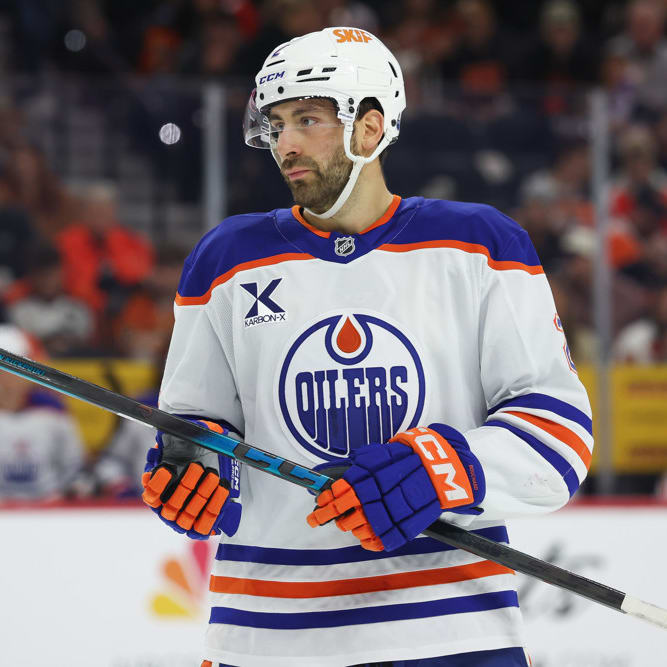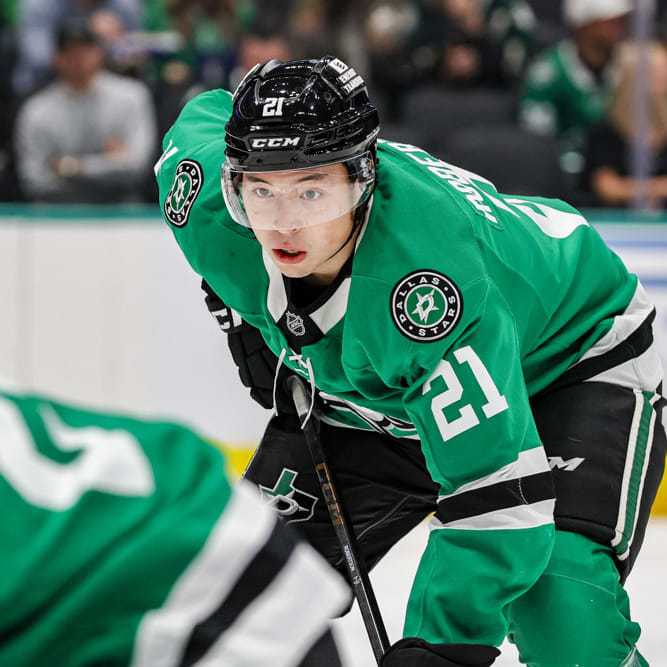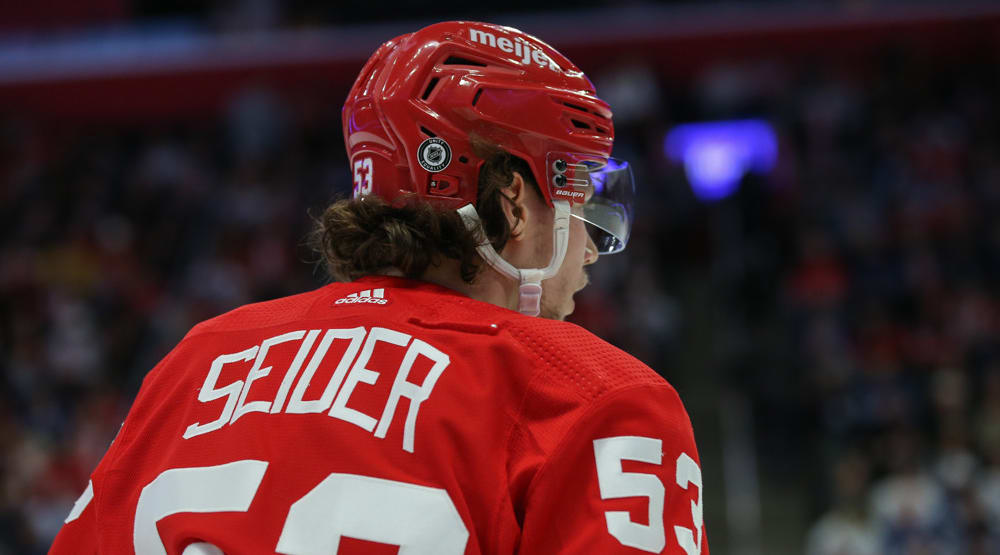While the current season remains on hiatus, there is no time like the present to start looking ahead to next year. Over the next several weeks, we'll take a look at the cap situation for all 31 NHL clubs, including restricted free agents, unrestricted free agents and even potential buyouts. Then, we'll play a little armchair General Manager by providing our recommendations for how we would approach the upcoming 2020-21 campaign if we were running the club.
In our second Twitter poll, the  Colorado Avalanche came in third and will be the final team of the week.
Colorado Avalanche came in third and will be the final team of the week.
2020-21 Cap Situation
The Avalanche currently have eight forwards, four defensemen and two goaltenders under contract for next season at a price tag of $59,135,595. Assuming a flat cap of $81.5 million, this leaves the club with $22,364,405 in salary cap space and nine spots under the 23-man roster to fill.
Restricted Free Agents
Andre Burakovsky ($3.25 million) Tyson Jost ($885,833) Valeri Nichushkin ($850,000) Vladislav Kamenev ($750,000) Nikita Zadorov ($3.2 million) Ryan Graves ($735,000)
AJ Scholz: Starting with the blue line, the first consideration should actually be Bowen Byram and how NHL ready the organizations believes he is. He racked up 52 points in 50 games with WHL Vancouver this season and you don't draft a guy fourth overall to have him sitting in the minors. Assuming he makes the jump, and he should, that leaves the defensive core in a bit of a logjam. To me, Graves is the better long-term option here, given he won't command the same price tag as Zadorov and offers more offensive upside. The Avs could try and move Zadorov's rights, but at the end of the day, letting him walk in free agency wouldn't be a huge loss. The 24-year-old Graves won't be matching Samuel Girard's new seven-year, $35 million deal, however, a modest three-year, $7.5 million shouldn't cause too much heartburn on either side, similar to the deal Stephen Johns signed back in 2018. In the minors, Kamenev is a machine. In 2016-17 with the Milwaukee Admirals, the center racked up 21 goals and 51 points in 70 games. At the NHL level, the 23-year-old has flopped with just 13 points in 66 outings for Nashville and Colorado. I may have a soft spot for the Russian, but I still think he can be an NHL caliber talent, it just won't be in Colorado. If he won't sign a $787,500 qualifying offer, then the Avs should trade him or let him walk. After a tough year in Dallas last season, Nichushkin has put up decent numbers (27 points in 65 games). He took a steep discount to play in the Mile High City and will likely want to get back to making closer to $3 million AAV. I don't see him getting that, but something closer to three years at $2.5 million might be a close enough compromise. Last offseason, Pavel Zacha and Adrian Kempe signed three-year deals at $2.25 million and $2 million AAV, respectively. Jost hasn't been as productive as those two, so he'll likely see his contract come in closer to $1.8 million annually over the course of three seasons. Burakovsky figures to be the hardest negotiation for Colorado this offseason. As an RFA, they could just hand him a qualifying offer of $3.25 million for another year and kick the can down the road, however, he is coming off a career year in which he topped the 20-goal and 40-point marks for the first time. The 25-year-old forward is going to want some term, 4-5 years at least, and he'll no doubt ask for more money than Joonas Donskoi or J.T. Compher. Depending on how active this club wants to be on the open market, it may want to trade Burakovsky and make his contract negotiations somebody else's problem. A five-year, $22 million contract is probably what it will take to bring the Austrian into the fold.
Kyle Riley: In terms of the Avalanche's two RFA defensemen, Graves has to be the priority. He's shown unreal chemistry with the up-and-coming superstar Cale Makar this season, and he currently leads the league in plus-minus rating with an absurd plus-40 mark. The Avs shouldn't hesitate to offer the 2013 fourth-round pick a four-year, $15 million deal to lock him down while they're in prime position to win a championship. Although I wouldn't be surprised to see him spend some time in the AHL next season, Bowen Byram is on the way, and Conor Timmins will almost certainly make the big club's roster out of camp next year, so I really don't think there's room for Zadorov with Graves re-signed. No one's going to trade for Zadorov's rights as an RFA that's already making $3.2 million, so I'd simply let him hit the open market as a UFA. As AJ alluded to, Kamenev's success in the minors hasn't translated to success at the NHL level at this point, but there's no reason to give up on him just yet. I'd be fine with giving him a one-year, $1.5 million "prove-it" deal. Nichushkin has had a solid season while playing in a middle-six role, and he has the necessary skill to fill in on the power play and move up and down in the lineup when injuries strike, so he's worth keeping around. I think AJ's on the money with a three-year, $7.5 million deal being fair for both sides. Jost has grown into a dependable bottom-six center over the course of his first full three seasons in the league, but I view him as a prime bridge-deal candidate. I think a two-year contract with an AAV of $1.7 million should get it done. Nichushkin has rebounded nicely following a dreadful 2018-19 campaign with the Stars, but I still think he's also at a crucial "prove-it" stage in his career, which means the Avs should be focused on signing him to a one-year deal with an AAV around $2 million. Burakovsky has broken out to the tune of 20 goals and 45 points in just 58 games during his first year with Colorado, so I think he's worth committing to long term. I think a five-year, $25 million deal would age nicely for the Avs, assuming of course this season wasn't just a flash in the pan for the 25-year-old winger.
Unrestricted Free Agents
Vladislav Namestnikov ($3.25 million) Matt Nieto ($1.975 million) Mark Barberio ($1.45 million) Kevin Connauton ($1.375 million) Michael Hutchinson ($700,000) Colin Wilson ($2.6 million)
AJ Scholz: There is a reason that Namestnikov has played for three different teams this season and four overall in his seven-year NHL career -- the 27-year-old struggles to live up to expectations. His numbers in Colorado prior to the shutdown weren't bad, four goals and two helpers in nine outings, yet the winger will likely be looking for a deal that at least matches the $4 million AAV he was paid over the past two seasons. With a depressed market, it's possible he'd be willing to take less, however, I just don't see this being a fit. As to the other two forwards, Wilson and Nieto are essentially the same player; a bottom-six guy capable of putting up 20-30 points and dishing out some hits along the way. With a handful of guys like Sheldon Dries, Martin Kaut and T.J. Tynan, to name a few, looking to make an impact down the road, I would recommend retaining just one of the veteran pluggers. The injuries concerns for Wilson make Neito the more viable option on a two-year, $4.5 million deal. The same one or the other situation applies to Barberio and Connauton. Both players are 30 years old, making relatively the same amount of money and offer relatively limited offensive upside. Regardless of which one the team wants to keep, he figures to slot in as the seventh defenseman heading into the 2020-21 campaign. At this point, whichever guy wants less term for less money fits the bill. My ceiling for an offer either player would be two years at a $1.6 million AAV. The Avs won't be bringing Hutchinson back, nor should they with the talent coming up through the ranks, but more on that later.
Kyle Riley: Namestnikov is a solid middle-six forward but I agree with AJ, the Avs should just chalk it up as a rental and let him sign elsewhere this summer. AJ's take on Nieto and Wilson is spot on, but I actually think Colorado should let them both walk after this season. Cale Makar is going to need a monster extension after next season, so the Avs need to be looking towards the future when deciding which depth players are worth retaining this summer. On that same note, as I mentioned earlier, Colorado has multiple NHL-caliber defensemen that are (or at least close to) being ready to make the jump, so there's no reason for the team to retain replacement-level blueliners like Connauton and Barberio at this point. Hutchinson is a sub-par backup and the Avs have Philipp Grubauer and Pavel Francouz as a solid one-two punch under contract for next season with a capable Adam Werner in the minors, so there's no reason to re-sign him.
Minor-League Free Agents *Who appeared in an NHL game in 2019-20
Logan O'Connor ($925,000) Sheldon Dries ($735,000) Jayson Megna ($700,000) Antoine Bibeau ($675,000)
AJ Scholz: For O'Connor and Dries, expecting anything more than there qualifying offers would be a mistake, considering they've logged a combined 66 NHL games over the past two seasons. Given the amount of cap space the team is likely to have, it could certainly consider slight pay bumps on two-way deals, but I would expect their QO's to get the job done here at $874,125 and $771,750, respectively. Bibeau will become an unrestricted free agent this summer as part of "Group 6", which means he's played three professional seasons but less than 28 NHL games. This speaks volumes about his future with the organization. With Hunter Miska, Adam Werner and Justus Annunen all under contract next season, it just doesn't make sense to re-sign Bibeau. After logging 58 games for the Canucks back in 2016-17, Megna has played in just nine NHL contests of the past two seasons. If he's willing to sign a low-cost, two-way deal then sure, why not keep him around with the Eagles.
Kyle Riley: O'Connor is still relatively young (23), but the chances of him becoming an NHL regular are slim at best at this point, so as AJ said, his QO should get the job done. Dries is already 26 years old, so he's nothing more than an AHLer that can be called up in a pinch at this stage in his career, so the Avs shouldn't offer him anything more than his QO. Jayson Megna is another example of a vet that teams love to have leading their AHL squads, so he's worth keeping around on a one-year, two-way $1 million contract. Bibeau has barely played for AHL Colorado this season, and he's been awful when given a look (two games, 6.02 GAA, .765 save percentage), so he's as good as gone.
Final Thoughts
AJ Scholz: As I alluded to above, the biggest decision facing Colorado is how active the organization wants to be on the open market. Without the Burakovsky deal I laid out above, I'd project the Avs to have approximately $9.1 million available to spend. That could be enough to bring Taylor Hall up from Arizona, combined with the prospect of playing with superstars like Nathan MacKinnon and Mikko Rantanen. One thing that has become clear is that a flat cap won't be easy on most of the league, but Colorado finds itself in a unique position of having some flexibility heading into 2020-21. Why not make a run at Hall when you can provide him something he's never had before, a Stanley Cup contending team. Remember, this is a guy that's logged 627 regular-season contests yet has qualified for the postseason just once and was bounced in the first round.
Kyle Riley: With the plan I outlined above, Colorado will be in a prime position to win a championship in 2020-21 while still having a little over $5 million in cap space to play with. That would give them the option to add a few complimentary pieces once free agency opens, but I actually think they should stand pat with their roster to begin the season and look to add a major rental at the trade deadline to push them over the top.


